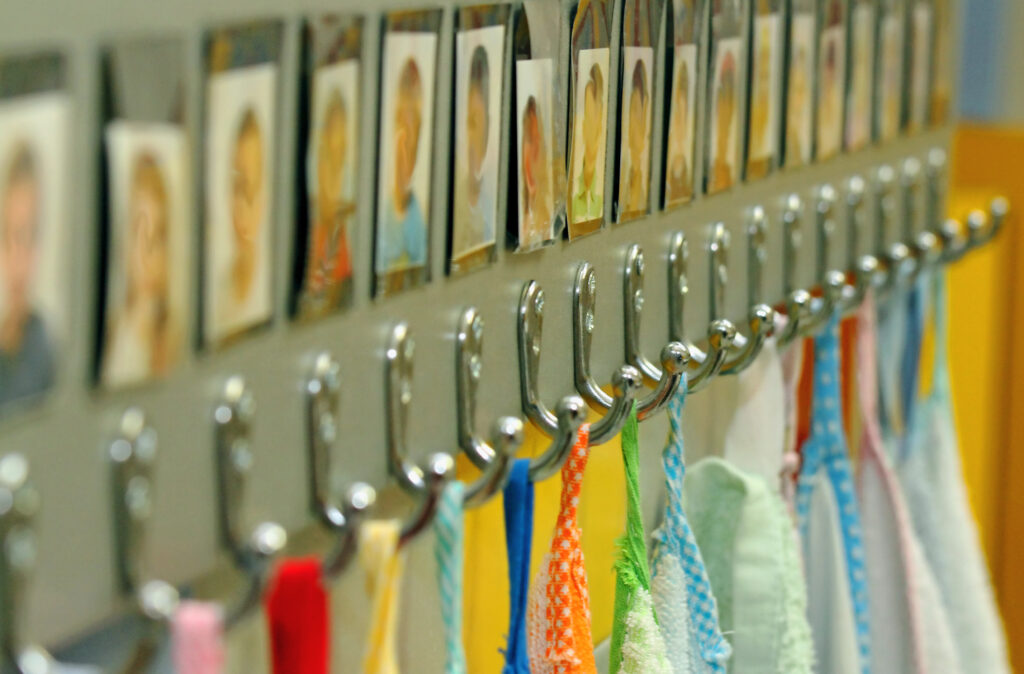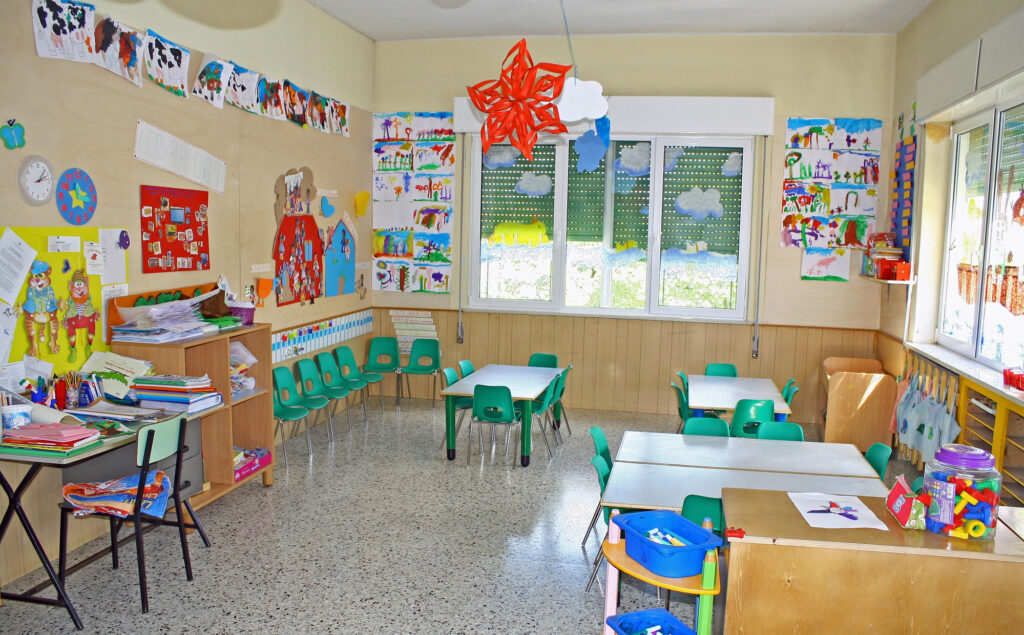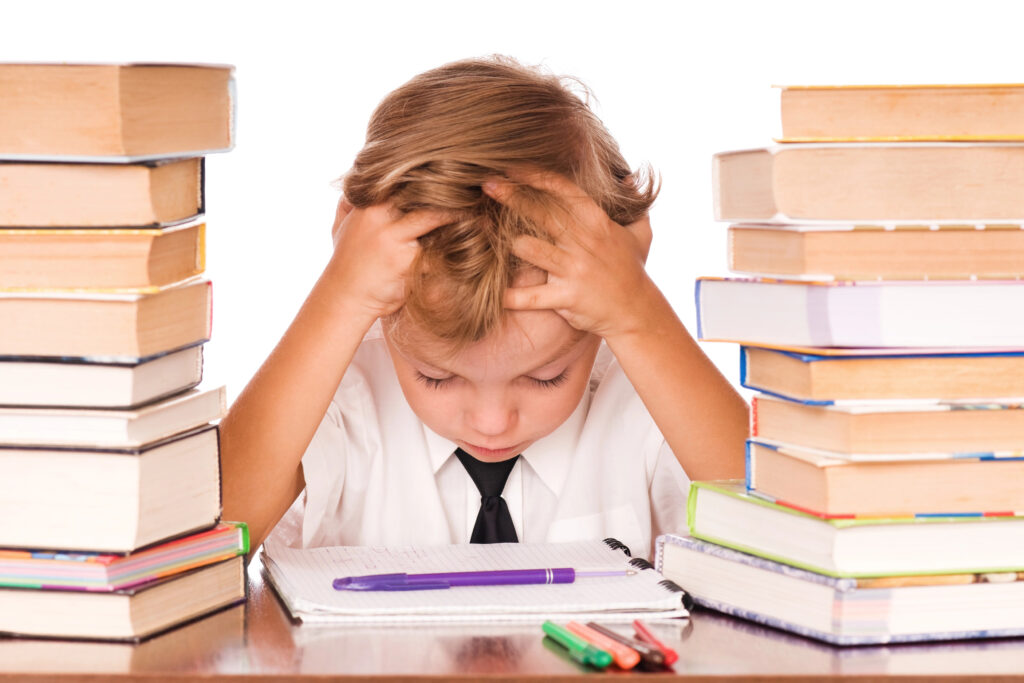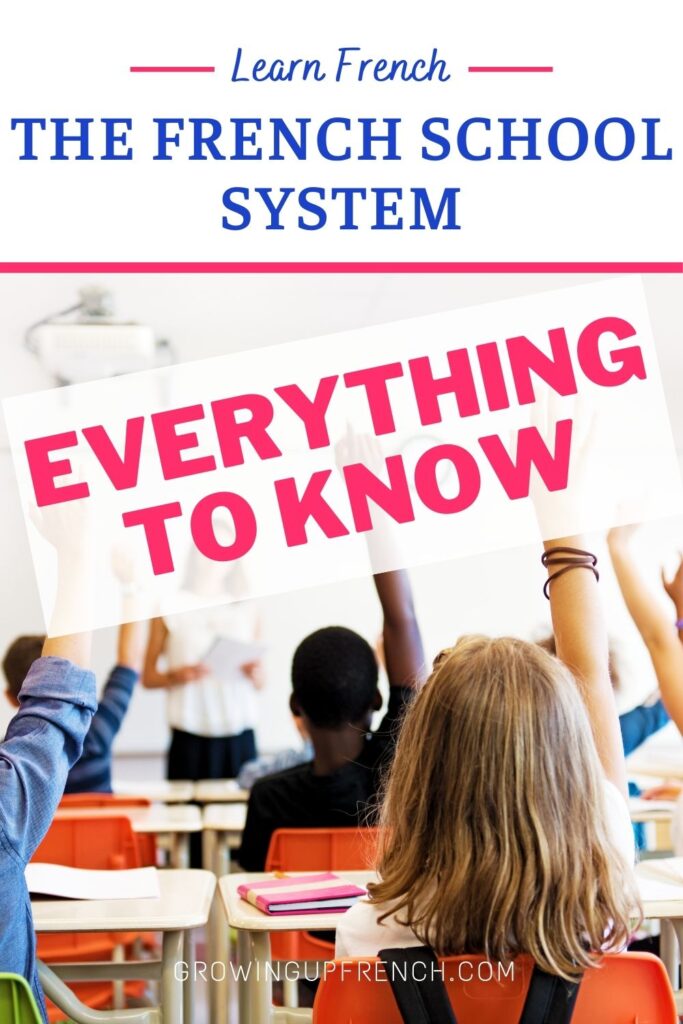Ah, l’éducation à la française! Buckle up, mes chers parents, because we’re about to embark on a wild ride through the French School System. From nursery rhymes to high school diplomas (le bac), France has a unique approach to education that’s both fascinating and, let’s face it, occasionally complicated and long. So, grab your café au lait and croissant: let’s delve into this journey through the educational labyrinth of this charming French particularity.
Optional start: La Crèche
Since maternity leave in France only lasts about 16 weeks (10 of which after birth), when the overly tired mother has to go back to work one of the options to take care of her newborn is the crèche. It can be a challenge to get into a crèche, as they are cheap and usually convenient (think applying at least 8 months before giving birth).
It’s most often a public institution so they can function differently depending on where you live. The “nounous” (people who watch young children) care for babies as old as 2 months until they can go to Nursery School (the year they turn 3).

Starting Line: Nursery School – L’Ecole Maternelle
Picture this: your little cherub toddling off to nursery school, armed with a tiny backpack filled with a couple changes of clothes and a heart full of curiosity. In France, this adventure begins at the tender age of three (the year they turn three, they start in September). Yes, you heard that right. At trois ans, our mini humans are thrust into the world of l’école maternelle, where they learn to sing “Frère Jacques” and paint with all the colors of the rainbow on their fingers (which will take a few baths to rub off).
But don’t be fooled by the finger painting and storytime sessions, l’école maternelle isn’t just child’s play. It’s the foundation of their academic journey. They will develop social skills, basic literacy, and an insatiable appetite for baguettes (especially if they eat at the canteen, as it’ll be the only thing they will want to eat).
L’école Maternelle is now mandatory as early as 3. There are 3 sections in nursery school: little, medium and big. So petite section, moyenne section and grande section. The very intense program includes a parent’s favorite: naptime. School is 4 days a week, and starts around 9am until about 4 or 5pm. A few recesses in there and the obligatory half-day pause of 1h30 to 2hrs depending on the laziness of the teachers.

Primary School: Bonjour, lecture et écriture!
Fast forward a bit, and voilà! Your little one is now strutting their stuff in primary school, or as the French call it: l’école élémentaire. Here, they dive into the three Rs: reading, ‘riting, and ‘rithmetic (with a side of French grammaire thrown in there to make sure they learn very early how to pull out their hair).
Primary school in France isn’t just about academics; it’s also a crash course in navigating the social intricacies of playground politics. From who gets the ball to where you are allowed to run or walk. From making friends to mastering the art of queuing for the school canteen, our mini scholars are learning valuable life lessons alongside their times tables.
Primary school contains 5 grades: from CP to CE1 to CE2 to CM1 to CM2. For the knowledgeable, it’s cours primaire, cours élémentaire 1 et 2, cours moyen 1 et 2. They also start English. Given the French proficiency in foreign languages, one will call it success if they arrive at the end of CM2 (fifth grade) knowing Hello and GoodBye (usually thanks to the Beatles).
Same as for Nursery School, the hours are long: from 9am to 5pm. No school on Wednesdays luckily for them (too bad for working parents). No need for lunch money: you either go home or you eat at school (monthly fee).

Middle School: The Awkward Years of Collège
Halfway through the French School System: Middle school. A time of braces, awkward growth spurts, and existential crises. In France, this tumultuous phase is known as collège (a fake friend). Where pre-teens morph into hormone-fueled creatures with a penchant for eye-rolling, door slamming, basic brief text messaging to their parents.
Here, they delve deeper into subjects like history, geography, technology, a second foreign language and all sorts of sciences, all while grappling with the existential question of “Who am I? How could I annoy my parents a bit more?“. Spoiler alert: the answer probably involves a lot of shrugging and declarations of, “I dunno, whatever, Maman!”.
But fear not, dear parents, for collège isn’t all doom and gloom. It’s also a time of newfound independence. Our young scholars spread their phones and embark on field trips to historic châteaux (because nothing says education like a dose of medieval architecture especially in France).
Le collège is divided into 4 grades which will be confusing for Americans as they go forward and we go backwards from here: 6ème, 5ème, 4ème and 3ème. There is a mandatory internship at the end of 4ème (from 3 to 5 days). The year of 3ème (9th grade) ends with a national diploma nobody has really cared about since 1968 probably: le brevet.
The awkward years get a half day more of school. The days are as long as the variety of subjects they study: from 8am to 5pm. If lucky les ados (adolescents) get a 2 hour break to eat, if not braces will come in handy to hold some food to distill throughout the day. Fun fact: no lockers! Get ready for scoliosis!

High School: Le Grand Finale du Lycée
And now, we arrive at la pièce de résistance: le lycée, aka high school. This is where the rubber meets the road, folks. With university looming on the horizon, our teens buckle down for three years of intense academic cramming and existential angst.
But it’s not all doom and gloom. Le lycée is also a time of self-discovery, where our budding intellectuals explore their passions and dabble in new options or activities. 3 grades in this last part: la 2nde, la 1ére et la terminale. La seconde (10th grade) is usually general. Then the last two years have to go a bit further in depth: either general teaching, or technological teaching. Parallel to this, you also have a more technical branch for those eager to work teens.
Les lycéens take an exam at the end of the Terminale to get the “big” high school diploma known as the Baccalauréat, or bac for short. It’ll allow them to go onto to l’université and technical schools, or highly competitive fast-tracks to grad school.
Conclusion: Vive L’Education!
So there you have it, mes chers parents – a whirlwind tour of the French school system from ages 0 to 18. From nursery school to high school, the journey is filled with laughter, tears, and the occasional existential crisis – it’s also fun for the kids I think.
But through it all, one thing remains constant: the unwavering dedication of French parents to see their children succeed. So here’s to les mamas and les papas who patiently help with homework assignments (those long nights sitting at the table asking what is 3 x 7, or listening to them recite a Cyrano de Bergerac monologue while wondering if you are still smarter than your child despite not having read the book), and cheer them on through every triumph (when you got an A+/100/20) and setback (when they got a D-/NA/8).
Because at the end of the day, whether they’re mastering leurs ABCs or reading Les Misérables (in bed at 11pm on their last day of vacation – not that you didn’t tell them to read it a week ago….), our children are the future (albeit scary one) – and the French school system is just the beginning of their incredibly long journey. So let’s raise a very full glass of wine to education, to teachers, to perseverance, and to the joy of watching our kids grow into the amazing individuals they were always meant to be. Santé!


